Prisoner diplomacy. How Russia manipulates the foreigner exchange in its relations with other countries
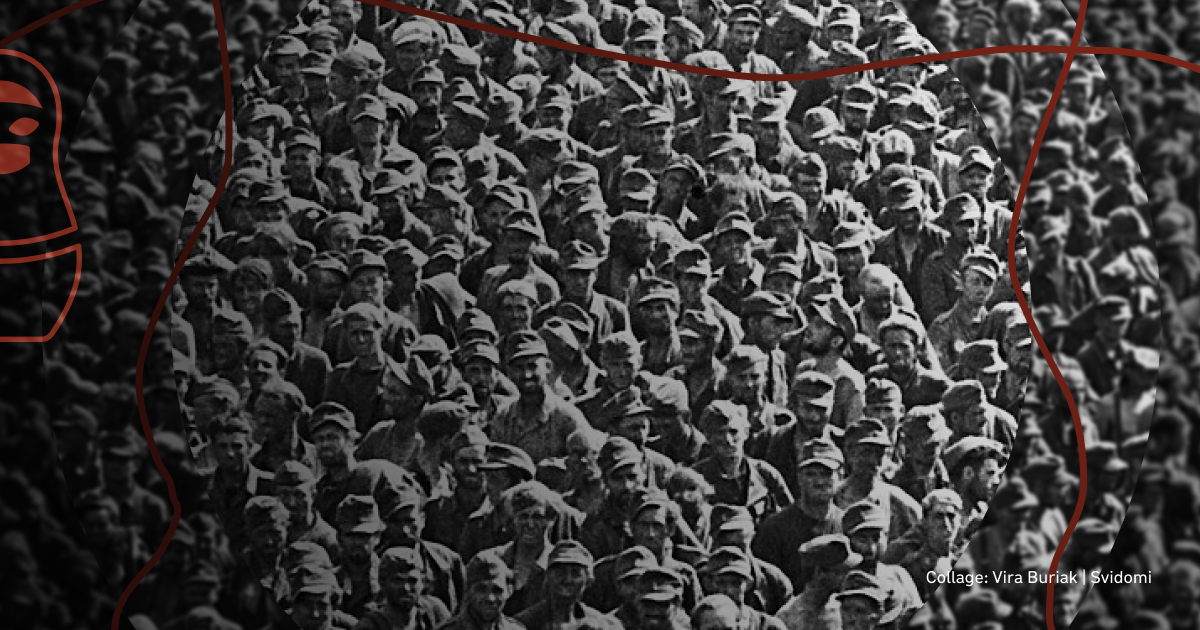
The exchange of prisoners and detainees between the US and the USSR was routine during the Cold War. One of the most famous exchanges took place in Berlin in 1962. Soviet spy Rudolf Abel (William Fisher), of German descent, was swapped for American U-2 pilot Francis Gary Powers and then college student Frederic Pryor.
The USSR used swapping to maintain diplomatic relations with countries whose citizens were imprisoned and tried. Francis Powers was accused of espionage and sent to a penal colony in the city of Vladimir for ten years. But the exchange also required Soviet citizens. They were arrested in West Germany, the United Kingdom and the United States. These were often KGB (Committee for State Security, Foreign Intelligence and Domestic Security of the Soviet Union — ed.) agents or people recruited by the KGB who were gathering information for the USSR and trying to infiltrate the state institutions of these countries.
Russia continues the USSR's exchange policy to exert diplomatic pressure and maintain relations with European countries and the United States. Thus, after Russia's full-scale invasion of Ukraine, the United States and Russia conducted at least two swaps: in December 2022 and on August 1, 2024. This means that Russia can put pressure on the United States by holding US citizens. It also continues to send its agents to other countries.
Svidomi tells how Russia replenishes its 'exchange fund' with foreigners and then uses them in its 'diplomatic game' against Western countries.
This article is published as part of the special project 'How Russia Undermines World Order'.
Hostages for ‘espionage’
In March 2023, the Russian Federal Security Service detained Evan Gershkovich, the Wall Street Journal reporter, on charges of spying. He was allegedly on assignment in Yekaterinburg to gather information about the Uralvagonzavod tank plant. On July 19, 2024, a Russian court found Gershkovich guilty and sentenced him to 16 years imprisonment. Evan Gershkovich was the first foreign reporter detained on espionage charges since the Cold War when US News & World Report’s Nicholas Daniloff was arrested in 1986.
However, he is not the only foreign reporter detained in Russia. Alsu Kurmasheva, who holds both US and Russian citizenship and works for RFE/RL's Tatar-Bashkir service, was arrested in Kazan in October 2023. She was charged with failing to register as a foreign agent and sentenced to five years in prison.
Russia does not only arrest journalists and not only for their professional activities. For example, on February 17, 2022, an American basketball player, Brittney Griner, was detained while going through customs at a Moscow airport. Two vape cartridges with traces of doctor-prescribed cannabis oil were found in her luggage. She was convicted on drug charges and sentenced to nine years in a Russian penal colony.
In December 2022, she was swapped for Viktor But, a Russian arms dealer. Bout was extradited to the United States in 2010 from Thailand. There, he was sentenced to 25 years in prison and found guilty of "conspiracy to murder Americans and US officials, supplying anti-aircraft missiles, and aiding a terrorist organisation".
Since then, Russia has been trying to get But out of prison in the United States. In 2018, Russians detained American Paul Whelan on suspicion of spying for the CIA and sentenced him to 16 years. Whelan is a former US Marine. He has visited Russia numerous times since 2006 and even learnt Russian. He also publicly supported Donald Trump's candidacy in the 2016 presidential election. In 2018, he came to Russia to attend the wedding of his friend. He was arrested by Russia's FSB state security agency. Paul Whelan and Evan Gershkovich were released as part of the August 2024 exchange.
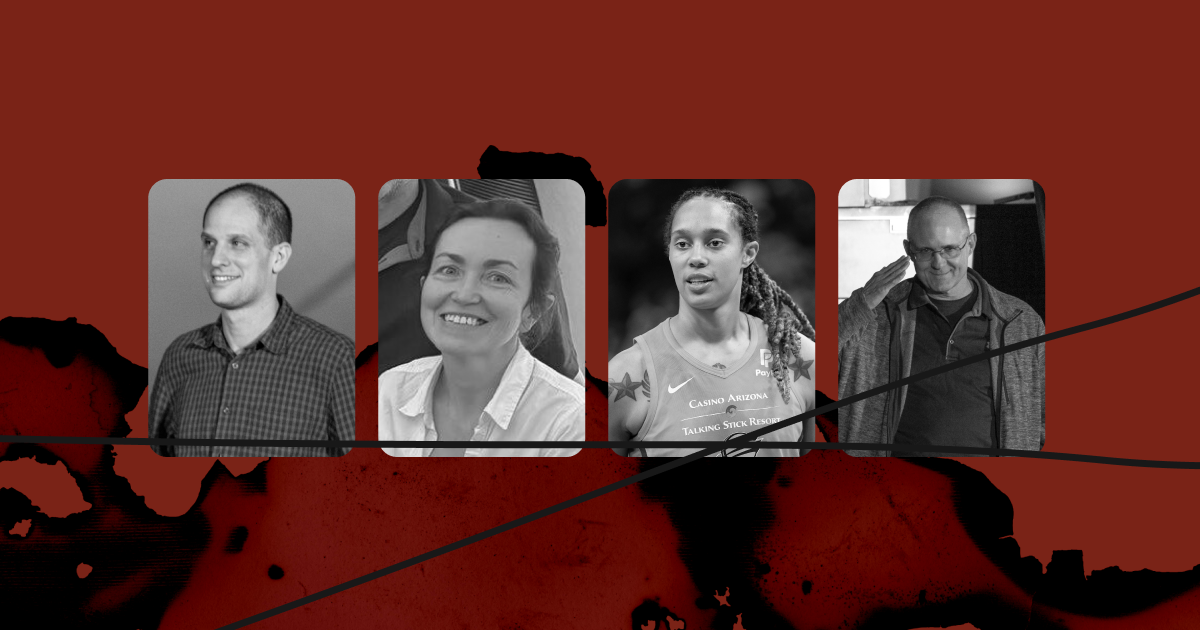
Analysts at the Chatham House Institute describe Russia's practice of detaining foreigners and then negotiating exchanges with other countries as 'prisoner diplomacy'. Russia arrests foreigners on its territory. Not necessarily those who have come to work in Russia, especially journalists. Brittney Griner and Paul Whelan are proof of this. Russia then uses them as bargaining chips in long negotiations for exchanges, knowing that countries like the US and the UK (Paul Whelan has British citizenship as well as American—ed.) will try to get their citizens out of Russian jails.
The longer the sentence, the more serious the article, and the more governments of other countries will try to force Russia to exchange citizens. That is why the charges are almost always trumped up or far-fetched. Alsu Kurmasheva was sentenced to prison for violating the law on foreign agents. According to Human Rights Watch, this law is designed to restrict the rights of journalists, human rights activists, and artists for expressing opinions that do not conform to official Kremlin policy. The law requires 'foreign agents' to refrain from advertising and to declare their assets and income. It also requires a person or organisation to state that it is a recognised foreign agent, to engage in educational activities, to participate in government processes, etc.
This is how Russia maintains diplomatic contacts with other countries, even during the war against Ukraine that it started in 2014. And not only against Ukraine — Syria, Georgia, interference in the conflict between Israel and Hamas — Russia is involved in all these wars and conflicts directly or in a hybrid way. On the other hand, it does everything it can to maintain diplomatic relations, even at the expense of people's freedoms.
Volodymyr Dubovyk, an Associate Professor, Department of International Relations, and Director of the Center for International Studies, Odesa I. I. Mechnikov National University, says that the arrest and show trials of foreigners who are then exchanged is Russia's deliberate strategy.
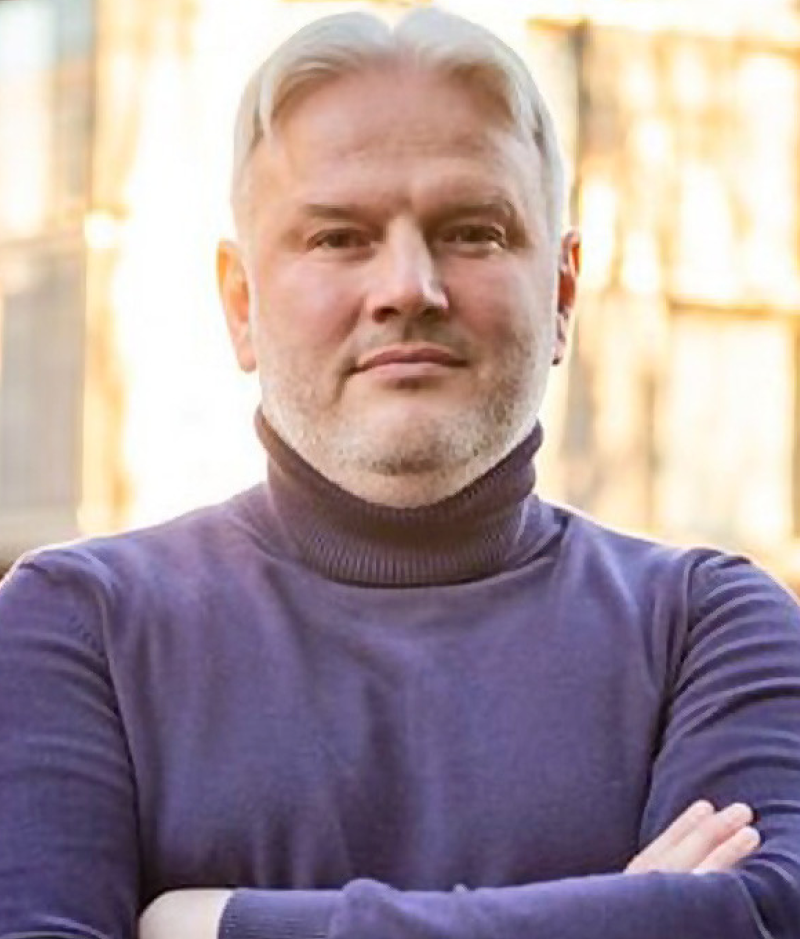
"This is taking 'hostages' to have an exchange fund. Yes, one of their aims is to maintain links with the countries of origin of the prisoners. This allows them to have channels of communication and not to interrupt the dialogue. The hope may be that this dialogue can later touch on other areas. In particular, the fate of Ukraine, formats for ending or suspending the war. But it is also important for them in terms of bringing their agents home,"
says the international relations expert.
Ksenia Karelina, an American of Russian descent, was arrested immediately after the August 2024 exchange, confirming that taking foreigners hostage is a Russian tactic. Karelina was arrested for donating to the American organisation Razom for Ukraine. Russia's FSB accuses her of funding the Ukrainian army.
The Navalny factor: why the US and Germany released Russian opposition figures from Russian prisons in the 2024 exchange deal
In the August 2024 prisoner exchange, Russia handed over eight Russians to the United States and Germany: Lilia Chanysheva, Ksenia Fadeeva, Vadim Ostanin, Ilya Yashin, Vladimir Kara-Murza, Andrei Pivovarov, Oleg Orlov and Alexandra Skochilenko.
The USSR often used exchanges to deport opposition activists and dissidents from USSR territory. For example, in 1976, the USSR used an exchange to Switzerland to deport Vladimir Bukovsky, who had exposed the Soviet use of psychiatry against political prisoners. He had been imprisoned for this in 1971.
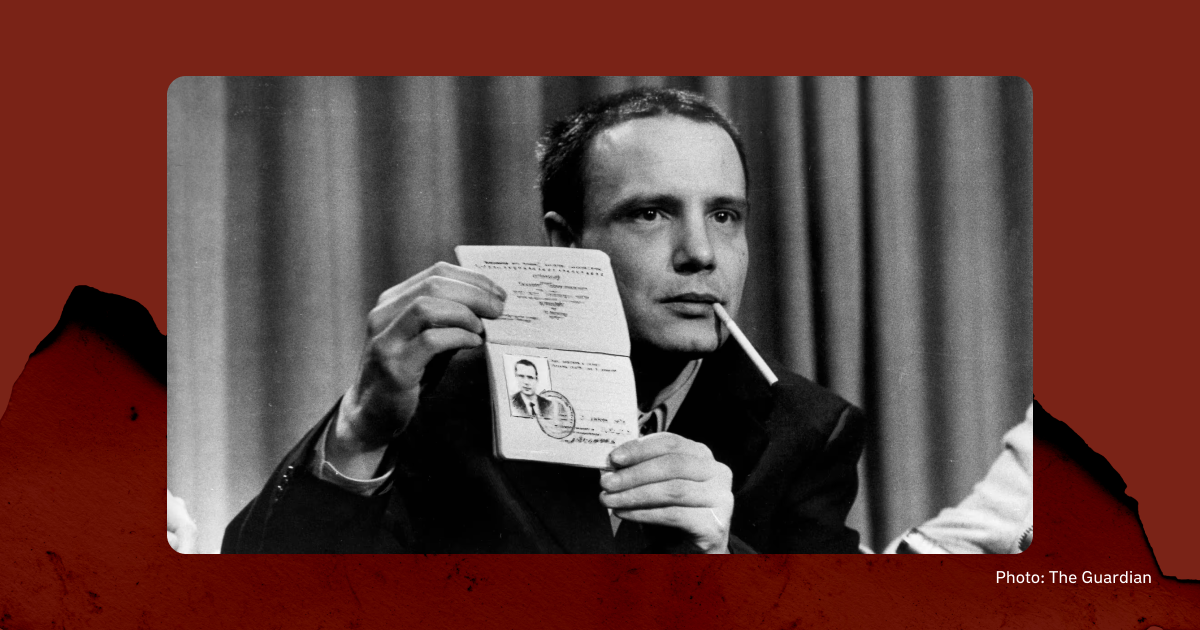
Bukovsky was never able to return to the USSR, and later to Russia, and lived in the UK for the rest of his life. He opposed the formation of the European Union and tried to support the opposition to Vladimir Putin in Russia. He also kept in touch with Alexander Litvinenko, a former FSB officer who fled Russia for Britain because he refused to carry out the task of poisoning Russian tycoon Boris Berezovsky. Litvinenko was poisoned by Russian special services in 2006. Bukovsky was a witness at the trial following Litvinenko's murder.
Ilya Yashin's fate is similar to Bukovsky's. As he says, he was exchanged against his will. He was imprisoned under the law on 'false information about the Russian military' for spreading information about Russian war crimes in Bucha. In 2020, however, Yashin took part in the spring conscription campaign in Moscow. He had long campaigned for reform of the Russian army, wanting it to be professional and free of legal problems. Yashin wrote in his Facebook post that he had been working on this for three years.
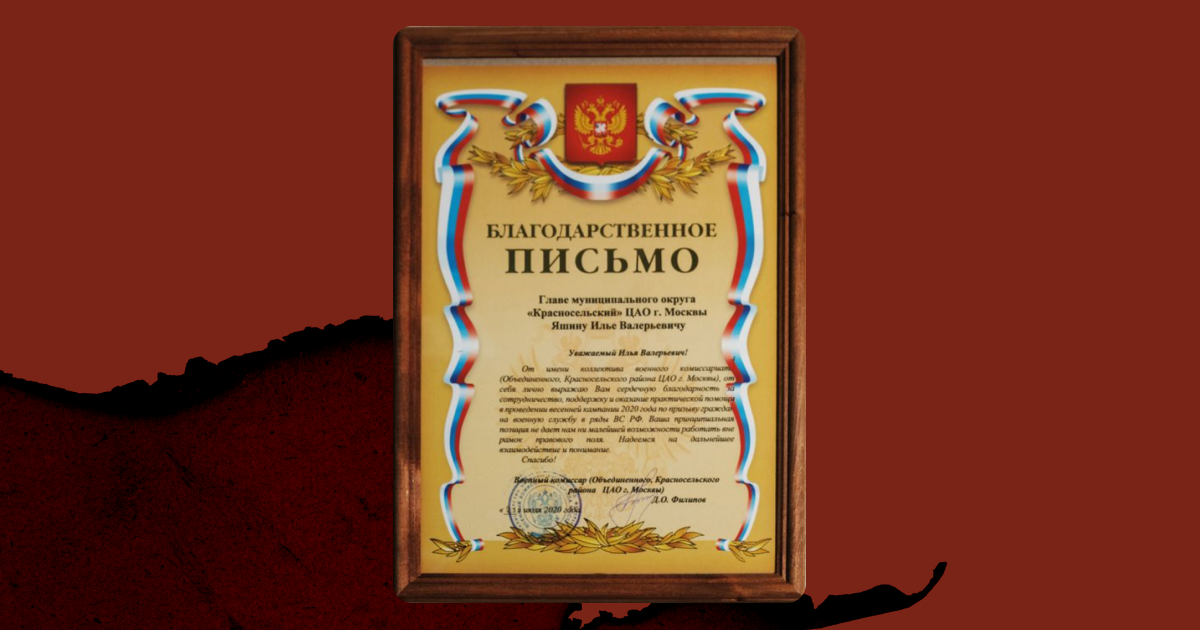
In 2017, Ilya Yashin met with Pavel Rubtsov, also known as Pablo Gonzalez, at a forum in Berlin. Russia returned the GRU (Main Directorate of the General Staff of the Armed Forces of the Russian Federation — ed.) spy Rubtsov as part of this exchange. Yashin also stated that "there is a significant part of people in Crimea who supported this operation" (Russia's occupation of Crimea in 2014 — ed.) and that it was necessary to create "a territory in Crimea where there will be the jurisdiction of Russia and Ukraine". All this to "prevent bloodshed".
After the exchange, Ilya Yashin continued this "preventing bloodshed" rhetoric. In an interview with the Russian media outlet TV Rain, he said that Ukraine and Russia should start negotiations to end the war and freeze hostilities. He was criticised for these words, and a few days later, in an interview with Russian blogger Yuri Dud, he said that he had been "out of context for two years".
Vladimir Kara-Murza is perhaps the most important person in this exchange. Had he not died, it would have been Alexei Navalny. Kara-Murza is the only Russian opposition politician with dual citizenship. He was arrested in 2022 for 'spreading false news about the army'. He spoke online to the Arizona state legislature in the United States, where he said he did not support Russia's invasion of Ukraine.
Vladimir Kara-Murza is a well-known Russian activist and politician. His main achievement is public lobbying for the Magnitsky Act. It was named in honour of the Moscow tax consultant who died in a Russian prison after uncovering a large-scale tax fraud scheme in the Russian security forces. The Magnitsky Act was designed to impose individual economic sanctions on Russian officials involved in fraud, persecution and human rights abuses. It was passed in the US in December 2012. Kara-Murza had been lobbying for it since July 2012. The European Union implemented its Magnitsky Act in 2019.
In 2023, Vladimir Kara-Murza handed over a list of 51 Russian officials from prison to the European Union and asked for sanctions to be imposed on them under the Magnitsky Act.
Kara-Murza believes in individual sanctions as opposed to sectoral sanctions, which are imposed on sectors and industries of the economy. After his release in the swap, Kara-Murza said that the EU and US should continue to impose individual sanctions on Putin's officials rather than sectoral sanctions on the Russian economy. He believes that ordinary Russians should not suffer from sanctions and be isolated in Russia. The EU and the US should offer them easy ways to leave Russia.
Ukraine insists on sectoral sanctions against Russia — against the military-industrial complex, the energy sector, the banking system, etc. Russia must lose its ability to produce weapons and finance the war.
But Vladimir Kara-Murza insists that it is the Putin regime that is to blame for the war, not Russia as a state. He believes that if the regime 'falls', Russian citizens will opt for the democratic development of the state.
After Alexei Navalny's death, Vladimir Kara-Murza became the face of Russian opposition activists and politicians in exile. US President Joe Biden met with him. It is he who is promoted and communicated with by foreign media. It is he whom Germany tried to get out of prison.
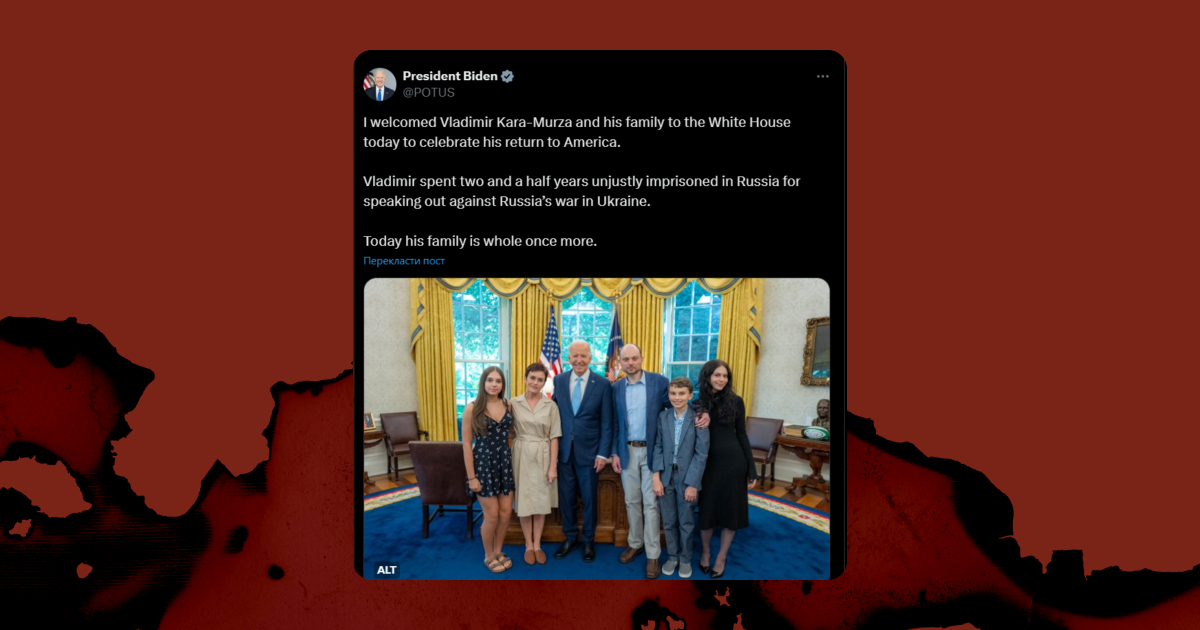
Volodymyr Dubovyk believes that the United States and Germany decided to release the imprisoned opposition politicians because they hoped to use them to undermine the Russian dictatorship.
"Many in the West cherish the hope of a new Russia in the future, so they try to keep opposition leaders. There is also a widespread belief that not all Russians support the war against Ukraine, although there is little evidence of this. What we do know now is that Navalny was part of the original exchange plan. Germany was prepared to hand over Krasikov in that case. But Navalny died, and everything came to a standstill. For Berlin, the possibility of releasing at least other opposition activists and associates of Navalny was an important condition for releasing Krasikov. For Russia, the expulsion of opposition activists is also an acceptable option, just as it was for the USSR at the time."
The exchange requires prisoners. Who Russia has sent to the West, and who will be sent again
In 2018, Maria Butina, an assistant to Russian Senator Aleksandr Torshin and a lobbyist, was arrested in the United States and charged with espionage. Using the National Rifle Association (NRA), Butina tried to enter the inner circle of then-US presidential candidate Donald Trump. She wanted to convince him of the need to establish and maintain a secret channel of communication between the United States and Russia.
Butina wasn't working alone. In addition to Senator Aleksandr Torshin, she was supported by Igor Pisarsky, the owner of the Kremlin-linked PR agency R.I.M., and Russian tycoon Konstantin Nikolaev.
Maria Butina actively demonstrated that she had allegedly infiltrated Donald Trump's inner circle. In November 2016, at a party on her university campus, Butina actively claimed that she had become a 'liaison' between Trump and Russia. The FBI was also pursuing her case as part of a wider investigation into the Kremlin's influence on the US election, which is why she was detained in 2018.
Immediately after her arrest, Butina claimed she was innocent. But in December 2018, during a court hearing, she pleaded guilty to spying for Russia. In April 2019, a federal court sentenced her to 18 months in prison. She was released in October 2019 and deported back to Russia.
In Russia, Maria Butina rose to stardom. She immediately became the host of the Russia Today YouTube channel, giving interviews and meeting with Russian officials. In 2021, she was elected to the Russian parliament from Putin's United Russia Party. In 2021, she visited Alexei Navalny in prison and said afterwards that he was "not starving, he even had sweets". Of course, in 2022, she supported Russia's full-scale invasion of Ukraine, which led to the US imposing sanctions on her.
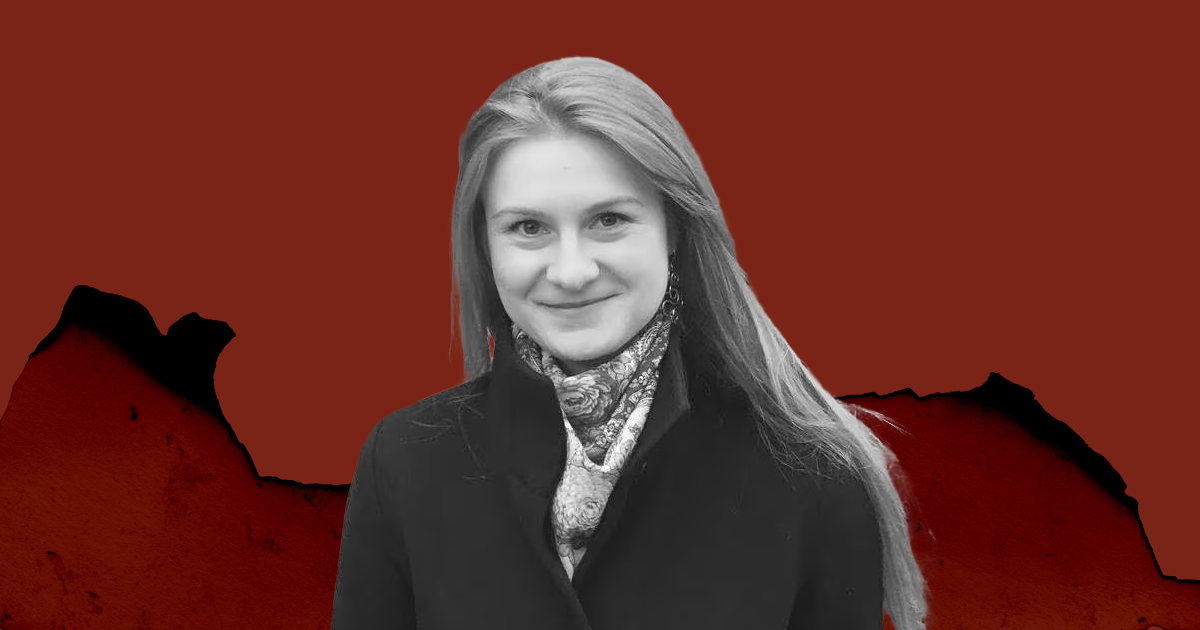
Butina's case is an example of how Russia infiltrates its agents in other countries, brings them home and grants them privileges. As part of the August 2024 swap, Russia returned Anna and Artem Dultsev, who were spies for the Foreign Intelligence Service (SVR). Also, Pavel Rubtsov, known as Pablo Gonzalez, and Mikhail Mikushin, spying for the Main Intelligence Directorate (GRU), Vadim Konoshchenko and Vadim Krasikov — FSB officers, Roman Seleznev — a hacker linked to the intelligence services. Vladislav Klyushin, a businessman and owner of a cybersecurity company, appears to have no links to Russian intelligence. However, the US detained him for trading its citizens' data and for his involvement in Russian interference in the 2016 US presidential election.
Vadim Krasikov was Putin's most coveted target among the prisoners swapped in August. In 2019, Germany sentenced him to life in prison for the murder of Georgian citizen Zelimkhan Khangoshvili in Berlin. During the court hearing, Krasikov said, "Russia would not let him rot in prison". After all, he is an FSB colonel and took part in the Second Chechen War.
Germany wanted to exchange Krasikov for the convicted Russian opposition politician Alexei Navalny. After Navalny died in a Russian prison, negotiations on the swap stopped, but then Russia added several imprisoned opposition politicians to the exchange.
Volodymyr Dubovyk believes that Russia will continue to saturate other countries with its spies to continue its 'prisoner diplomacy'.
"Russian agents will be detained in Western countries from time to time. We can see that Russia's subversive activities in the West have increased significantly recently. This is why there is already talk of an intensification of Russia's 'hybrid' war against the West (NATO also reports this — ed). Therefore, we can predict Moscow's new attempts to recruit a new 'exchange fund' for the future."
On July 24, 2024, the Russian citizen Kirill Gryaznov was detained in Paris. He is a chef who has lived in France for 14 years and was due to work at the Olympic Games. He is suspected of spying for the FSB and laying the groundwork for the provocations during the Games. This is one of the latest cases of arrests of Russian citizens suspected of spying for the Russian intelligence services. This case shows that Russia is ready to continue its 'prisoner diplomacy' to manipulate and threaten other countries.


